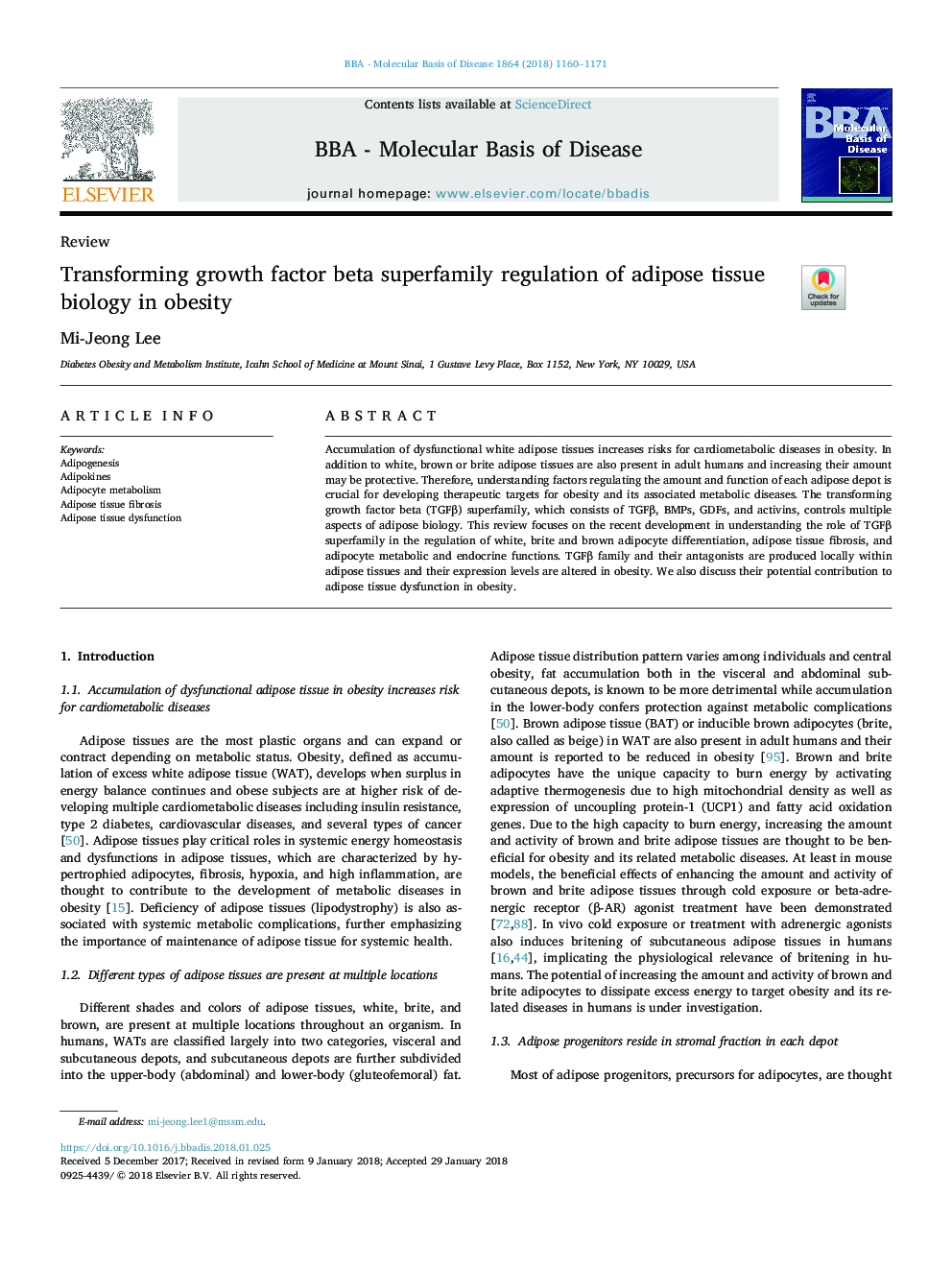| Article ID | Journal | Published Year | Pages | File Type |
|---|---|---|---|---|
| 8258558 | Biochimica et Biophysica Acta (BBA) - Molecular Basis of Disease | 2018 | 12 Pages |
Abstract
Accumulation of dysfunctional white adipose tissues increases risks for cardiometabolic diseases in obesity. In addition to white, brown or brite adipose tissues are also present in adult humans and increasing their amount may be protective. Therefore, understanding factors regulating the amount and function of each adipose depot is crucial for developing therapeutic targets for obesity and its associated metabolic diseases. The transforming growth factor beta (TGFβ) superfamily, which consists of TGFβ, BMPs, GDFs, and activins, controls multiple aspects of adipose biology. This review focuses on the recent development in understanding the role of TGFβ superfamily in the regulation of white, brite and brown adipocyte differentiation, adipose tissue fibrosis, and adipocyte metabolic and endocrine functions. TGFβ family and their antagonists are produced locally within adipose tissues and their expression levels are altered in obesity. We also discuss their potential contribution to adipose tissue dysfunction in obesity.
Related Topics
Life Sciences
Biochemistry, Genetics and Molecular Biology
Ageing
Authors
Mi-Jeong Lee,
